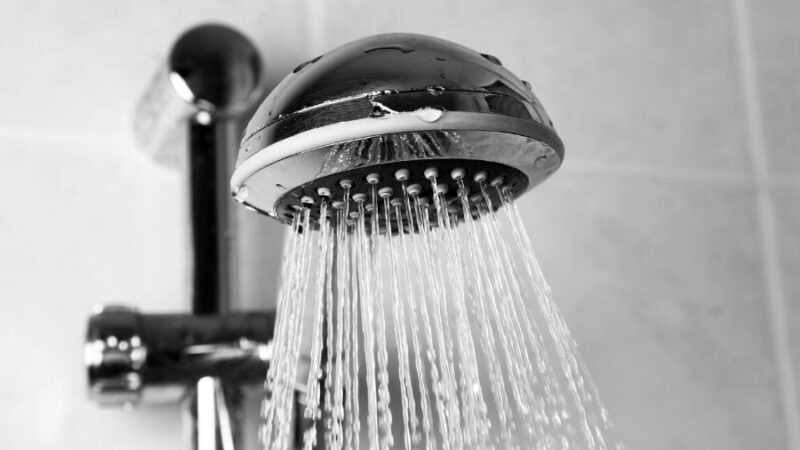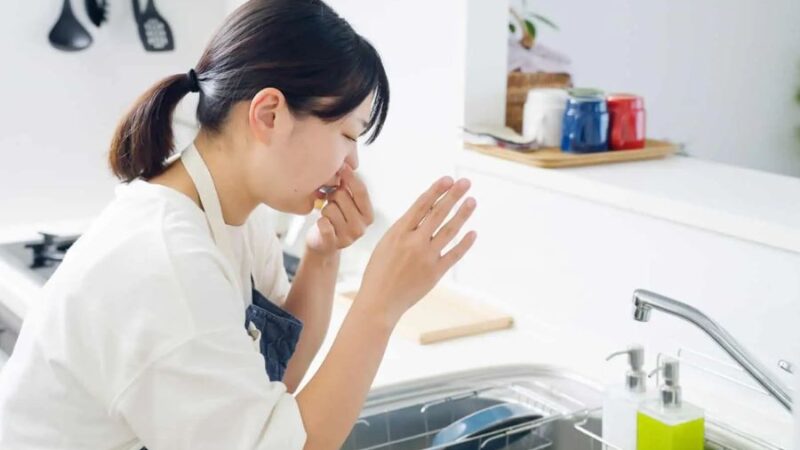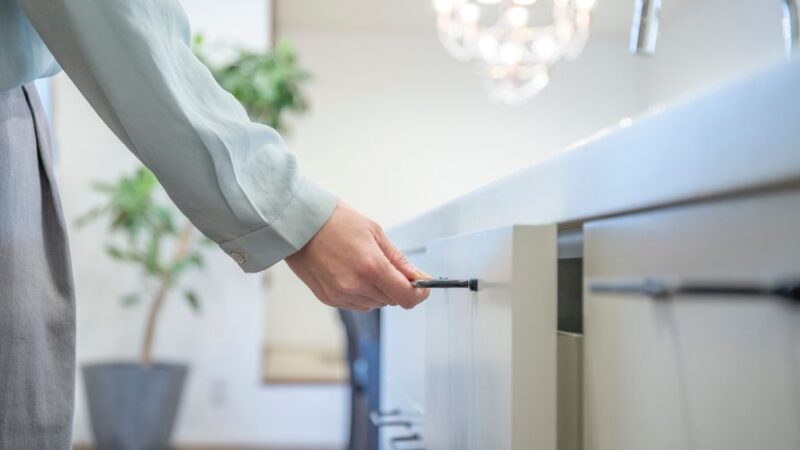Practical Tips to Prevent Plumbing Emergencies
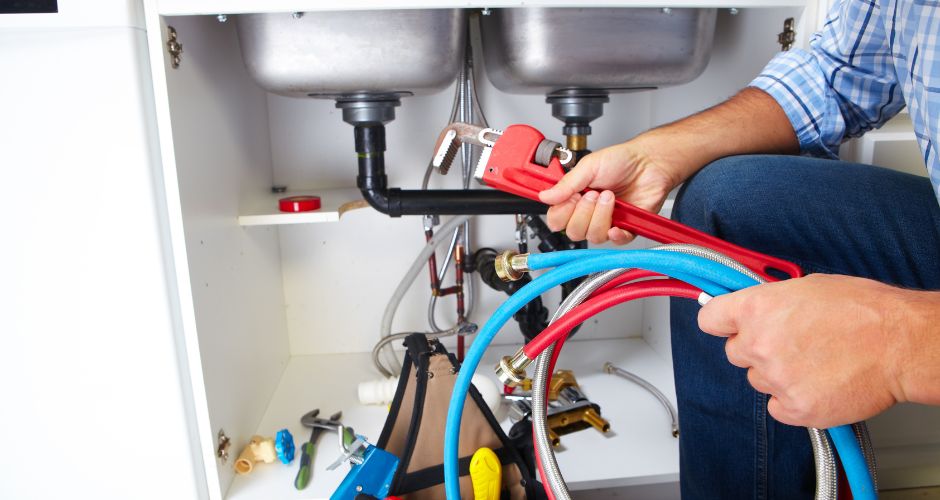
Plumbing emergencies have a way of striking at the most inconvenient times, turning a peaceful day into a stressful scramble for solutions. From burst pipes to overflowing sinks, these unexpected disasters can disrupt your routine and drain your wallet. But here’s the good news: most plumbing emergencies are preventable with a little proactive care.
In this blog, we’ll walk you through practical, easy-to-follow tips to keep your plumbing system in top shape. Ready to take control and keep those plumbing nightmares at bay?
Common Plumbing Emergencies
Some of the most common plumbing emergencies and provide valuable insights on how to handle them. By being prepared and knowing what steps to take, you can minimize the damage and stress that these emergencies can cause.
Burst Pipes
One of the most alarming plumbing emergencies is a burst pipe. The sudden rush of water can cause significant damage to your property if not dealt with quickly. Burst pipes can occur due to freezing temperatures, old and corroded pipes, or excessive water pressure.
If you notice a burst pipe, here are the steps you should take:
- Turn off the main water supply: Locate the shut-off valve in your home and turn it off to stop the water flow. It’s crucial to know the location of this valve beforehand to act swiftly in an emergency.
- Open faucets to relieve pressure: By opening the faucets, you can release any remaining pressure in the pipes and help minimize further damage.
- Call a professional plumber: While you may be able to temporarily patch a burst pipe, it’s essential to call a professional plumber to fix the underlying issue and prevent future incidents.
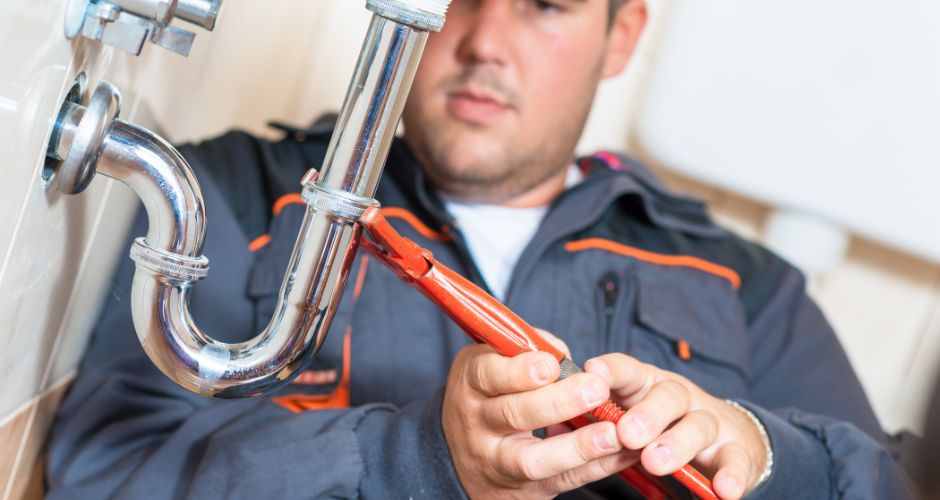
Clogged Drains
Dealing with a clogged drain is a common plumbing issue that can cause inconvenience and frustration. Whether it’s a sink, toilet, or bathtub, a clog can disrupt your daily routine.
Here are some steps to tackle clogged drains effectively:
- Use a plunger: A plunger is a simple yet effective tool for clearing minor clogs. Create a tight seal around the drain and plunge vigorously to dislodge the blockage.
- Try a drain snake or auger: For stubborn clogs, a drain snake or auger can be used to physically remove the debris. Insert it into the drain and rotate it to break up or retrieve the clog.
- Avoid chemical drain cleaners: While tempting, chemical drain cleaners can do more harm than good. They can corrode your pipes and cause harmful fumes. Opt for natural alternatives or seek professional help instead.
Recommended – How to Unclog Blocked Drain in Your Home
Leaking Fixtures
Leaking fixtures, such as faucets or showerheads, not only waste water but can also lead to higher utility bills. Addressing these leaks promptly is essential for water conservation and cost savings.
Follow these steps to tackle leaking fixtures effectively:
- Turn off the water supply: Locate the shut-off valves near the leaking fixture and close them to stop the water flow. This will prevent further leakage while you work on fixing the issue.
- Identify the cause: A leaking fixture can be due to a worn-out washer, loose connections, or a faulty valve. Inspect the fixture carefully to determine the cause of the leak.
- Replace or repair the faulty part: Once you have identified the issue, either replace the worn-out part or tighten the connections. If you’re unsure, consult a professional plumber for assistance.
Running Toilets
A running toilet is not only annoying but can also waste a significant amount of water over time. It’s important to address this plumbing emergency promptly to conserve water and maintain a functioning toilet.
Follow these steps to stop a running toilet:
- Check the flapper valve: The flapper valve is responsible for sealing the water tank. If it is worn out or misaligned, it can cause the toilet to run continuously. Adjust or replace the flapper valve as needed.
- Inspect the fill valve: The fill valve controls the water level in the tank. If it is not functioning correctly, it can lead to water overflow and a running toilet. Adjust or replace the fill valve to resolve the issue.
- Seek professional help if needed: If you have tried troubleshooting the issue without success, it’s best to call a professional plumber. They can accurately diagnose the problem and provide a long-lasting solution.
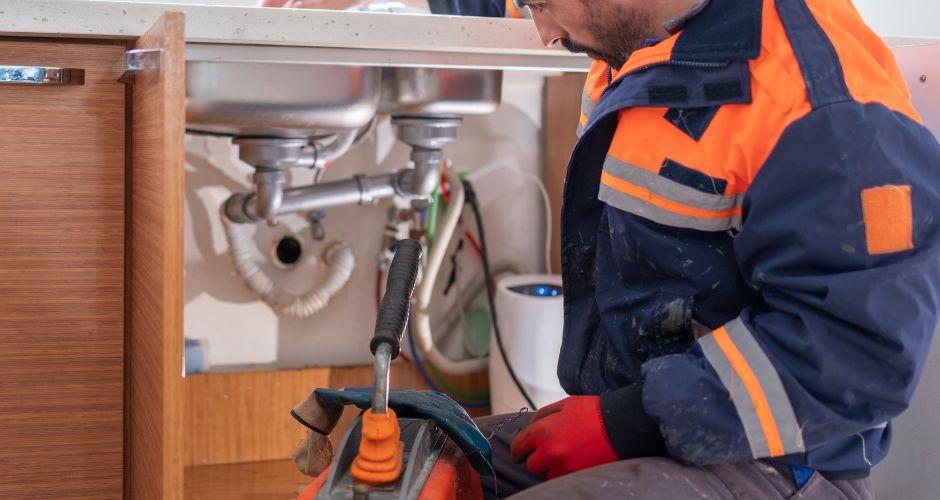
DIY vs. Professional Help
The Appeal of DIY
When faced with a plumbing emergency, the do-it-yourself approach can be tempting. After all, taking matters into your own hands may seem like a cost-effective solution. However, there are certain factors to consider before embarking on a DIY plumbing project.
While small issues like a simple faucet leak or a minor toilet clog can often be resolved on your own with basic tools, more complex problems require professional expertise. Tackling advanced plumbing tasks without proper knowledge and experience can result in costly mistakes and even more extensive damage. It is always better to err on the side of caution and seek professional help when in doubt.
Benefits of Professional Help
Hiring a professional plumber for plumbing emergencies offers numerous benefits. Firstly, licensed plumbers possess the necessary expertise to accurately diagnose the problem and recommend the most effective solutions. Their years of training and experience enable them to work efficiently, saving you time and effort.
Moreover, professional plumbers have access to specialized tools and equipment, which are often crucial in resolving complex issues. Additionally, reputable plumbing companies provide guarantees on their work, giving you peace of mind knowing that the problem will be fixed correctly. Investing in professional help ensures the long-term durability of your plumbing system, preventing recurring emergencies and costly repairs down the line.
Conclusion
Plumbing emergencies can be stressful, but by following the right steps, you can effectively manage them and minimize the damage. Now is the time to take charge and equip yourself with the knowledge to handle plumbing emergencies like a pro. By staying informed and knowing when to seek professional assistance, you can safeguard your home and enjoy the peace of mind you deserve.


